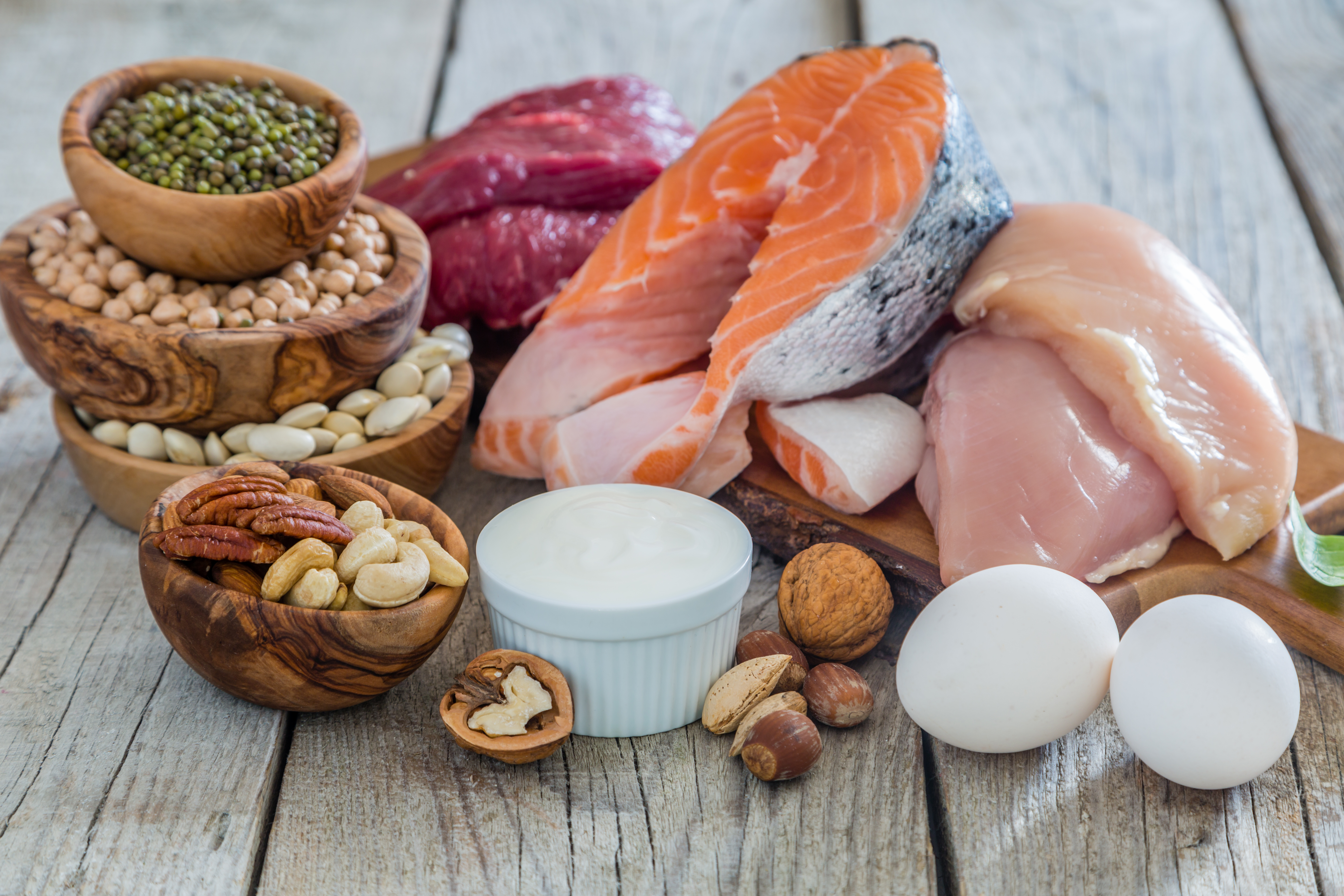
If you’re interested in a ketogenic, or keto, diet, start by informing yourself about your body’s needs. Keto diets are low-carb, with a goal of keeping carb intake below 50 grams per day and limiting sugars and starches. Followers of the diet will want to avoid items like bread, potatoes, and other carb-heavy foods while enjoying more natural fats, eggs, and vegetables that grow above ground. It is possible to over-rely on proteins while following the keto diet, making it more important than ever to understand your body’s needs.
How much protein do I need on a daily basis?
For persons who are not on a ketogenic diet, a general rule for smaller persons is 30 grams of protein twice daily, totaling 60 grams. Larger individuals can eat up to 30 grams three times a day, totaling 90 grams. What does that look like translated into food? An egg has roughly six grams of protein. A four-ounce chicken breast serves up approximately 30 grams of protein, as does four ounces of ground beef.
However, if you are following the ketogenic diet, individuals only need 50-60 grams daily. This is in part because the keto diet is considered a moderate-protein diet, with a target percentage of daily calories set at 15-25% of your intake. The keto diet is about decreasing the amount of sugar in your body and using fat to fuel the body instead; excess protein can be converted to blood sugar in the body and so should be avoided. You want to eat just the amount of protein your body needs but no more.
What to eat
Great protein sources for the keto diet include seafood, beef, pork, eggs, and chicken. Consider cooking with coconut oil or olive oil, and incorporate almonds, walnuts, and other nuts into your daily meals. Keep track of your protein intake to ensure that you are meeting — and not exceeding — the 50-60 gram target.

